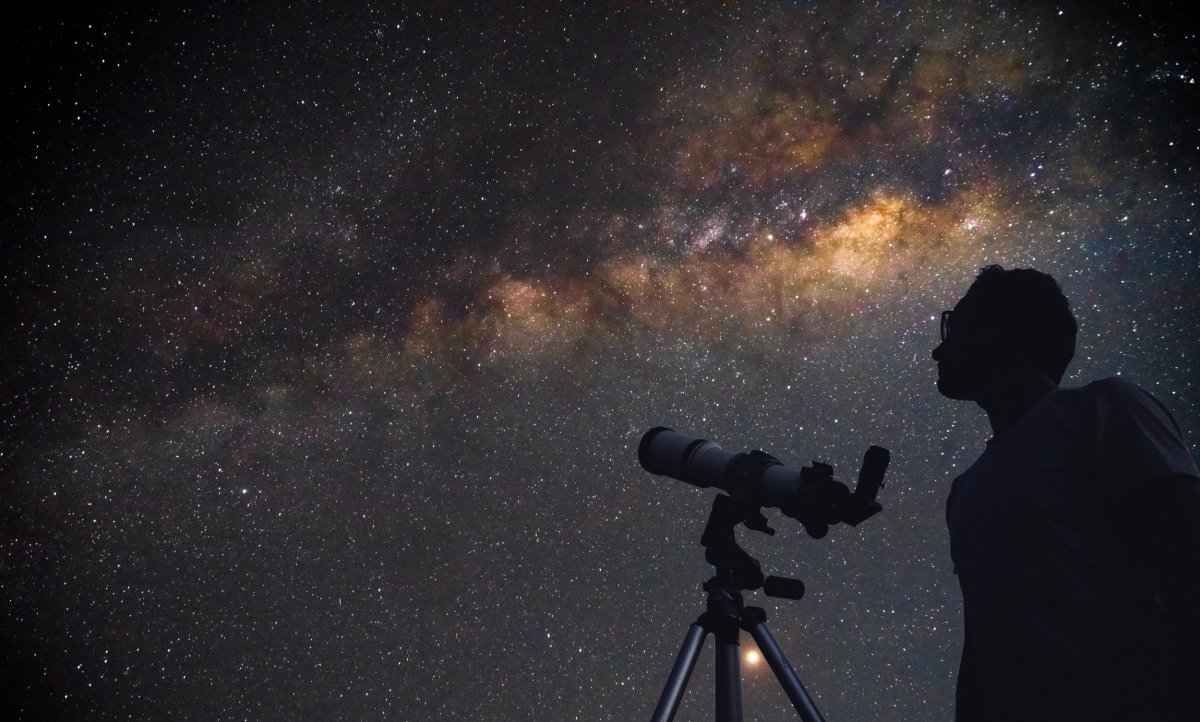Astronomy fans will be able to watch a comet gliding past a star cluster this week in a rare skywatching event.
This month, the comet C/2021 A1 Leonard is due to pass overhead for several days as it heads towards the sun for the first time in an estimated 70,000 to 80,000 years.
As Newsweek previously reported, it is hoped that the comet will increase in brightness enough to be seen by the naked eye at some point over the next couple of weeks.
Sky at Night magazine reported it will peak in brightness on December 13, and has published charts highlighting its expected location in the sky relative to other celestial bodies over several days.
In addition, the Virtual Telescope Project is due to host a livestream of the comet sharing a patch of night sky with a vast cluster of stars called Messier 3.
The Virtual Telescope Project states that "the view will be breathtaking." It will host the "Comet Leonard & Messier 3 meeting" livestream on its website here on December 3 at 3:00 a.m. UTC (10:00 p.m. ET, December 2).
Comet C/2021 A1 Leonard was discovered at the start of this year by astronomer Gregory J. Leonard, a senior researcher at the Department of Planetary Sciences at the University of Arizona, at the Mount Lemmon Observatory in Arizona, according to Space.com.
Its orbit is highly eccentric, meaning that it has travelled around the sun in a flat oval shape rather than a circular one.
As such it is thought that it has travelled as far as 325 billion miles away from our sun, or around 3,500 times the distance between the sun and the Earth, Space.com reported.
It takes a long time to complete this orbit—35,000 years either way, according to Sky and Telescope magazine.
But while the comet may have orbited the sun at least once before, this will be its last time. Leonard stated in a University of Arizona press release on December 13 that the comet would not be returning to the solar system again.
He said: "This is the last time we are going to see the comet," Leonard said. "It's speeding along at escape velocity, 44 miles per second. After its slingshot around the sun, it will be ejected from our solar system, and it may stumble into another star system millions of years from now."
When C/2021 A1 Leonard appears close to Messier 3 this week, it will not actually be physically close to the star cluster. The comet will actually be around 3.6 light-minutes away and the star cluster 34,000 light years away, the Virtual Telescope Project notes—but they'll look close in the sky from our perspective on Earth.
Comets are frozen chunks of ice, gas and rock that are leftovers from the formation of the solar system.
Their orbits sometimes see them come particularly close to the sun, which causes them to heat up. When this happens, they start to spew out dust and gas that stretches away from them in a comet tail that can be millions of miles long. Rarely, a comet can be seen with the naked eye.
According to NASA, the current number of known comets is 3,743. But there are likely to be billions of them orbiting our sun altogether.
20/12/2021, 12:10 p.m. ET, Update: This article has been updated to state that Comet Leonard will not be returning to the solar system after its ongoing pass by the sun.

Uncommon Knowledge
Newsweek is committed to challenging conventional wisdom and finding connections in the search for common ground.
Newsweek is committed to challenging conventional wisdom and finding connections in the search for common ground.
About the writer
To read how Newsweek uses AI as a newsroom tool, Click here.








